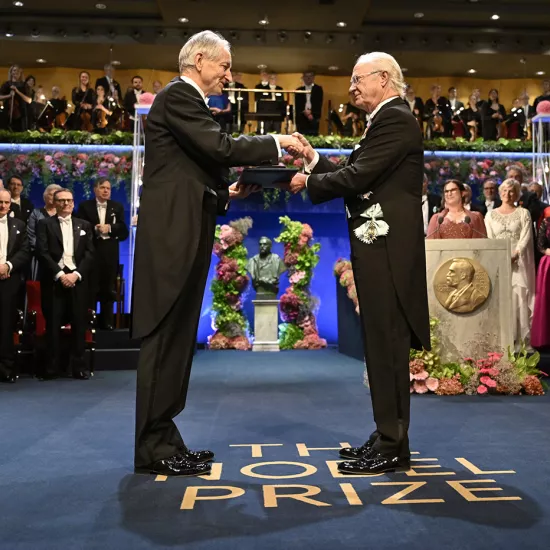'The gift of time'

Iva Zovkic, epigeneticist and assistant professor in the Department of Psychology at the University of Toronto Mississauga, has been awarded the 2018 Dorothy Shoichet Women Faculty Science Award of Excellence. She won the award for her work on the role of epigenetics in memory formation and neurodegeneration and its potential for developing new therapies for age-related memory disorders.
Molly Shoichet, the Province of Ontario’s first chief scientist and university professor at the University of Toronto, established the Dorothy Shoichet Award in honour of her mother. The award provides teaching-release-time funds to pre-tenure or early-tenured women professors. The recipients can hold appointments in any of the physical or life sciences, computer sciences or mathematics within the Faculty of Arts & Science or at UTM or UTSC. Zovkic will be granted release time in the 2019-2020 academic year.
“This is the award of time. It’s a blessing,” says Zovkic. “It is impossible to do all the things I want to do. Staying on top of research while teaching is very difficult, especially since all my work so far has mostly been in a normal mouse population. I’m shifting to all this work in dementia and Alzheimer’s Disease and I need the time to fully immerse myself.”
Professor Ashley Monks, chair of the Department of Psychology, says that Zovkic, like many early career researchers, is at a pivotal stage of discovery when this award will allow her to capitalize on emergent research opportunities. “She is, simply put, a fantastic early career scientist. Her research is world-class and she has stellar accomplishments in her field of study. Importantly, she is also an advocate, mentor and role model for women in science.”
Of histones and humans
Zovkic studies how external factors or “epigenetic mechanisms” can regulate DNA. Genes in our DNA pass traits like hair colour or the predisposition for disease from parents to a child. DNA is packed into the nuclei of our cells. It is mostly wrapped tightly around special proteins in the nuclei, which creates a condensed structure. Zovkic says that when DNA is condensed, the genes it encodes cannot be accessed; that is, the genes are "turned off."
She researches how epigenetic mechanisms, such as the addition, modification or removal of special proteins from DNA, can make it accessible so that specific genes can be turned on or off.
"I found that one histone protein in particular, H2A.Z, is involved in suppressing memory by acting like a brake on gene activity," says Zovkic. "We know that the levels of H2A.Z go up in ageing and we think that this a precursor to age-related memory decline. We are studying it as a potential target in Alzheimer's Disease.”
“A really big problem in science”
In her research into Alzheimer’s Disease, Zovkic includes data from both men and women, and male and female mice. She says that this is important because women are at greater risk for Alzheimer’s Disease than men. “There is a lot of interest in trying to understand if the mechanisms that lead to Alzheimer’s Disease are the same in women and in men, if there is a reason that women are more vulnerable than men,” says Zovkic.
Zovkic was invited by the CIHR Institute of Gender and Health to attend a meeting for new investigators. “Primarily what we discussed was how sex gets ignored,” she says. “This is a really big problem in science in general. We tend to focus only on male models in the majority of studies, including Alzheimer’s Disease. It’s not feasible to come up with strategies that work for both males and females or men and women if we only try to understand how it works in males. Shifting towards studying both sexes is important.”
Zovkic joined the Department of Psychology in 2014. Of her 30 publications, 12 were published since joining U of T Mississauga and her thirteenth publication is in revision. She has secured nearly $1.5 million in grants. She is a co-applicant on three other successfully funded grants and on another in progress. She is a reviewer for the top journals in neuroscience and holds membership on grant review panels in Canada and internationally for funding bodies in the United States and the United Kingdom.
“It is a pleasure to see one of UTM’s leading early career researchers recognized for her achievements through this award,” says Professor Kent Moore, Vice-Principal, Research. “Professor Zovkic is clearly an outstanding scientist and this award will allow her to accelerate her career as she transitions to a new field of research.”
Zovkic says that the Dorothy Shoichet Award is the best kind of award that she could possibly imagine. “This award means allowing my lab to switch more fully to studies on dementia and Alzheimer’s Disease and also to be able to work on our publications and write grants to secure funding for more of our Alzheimer’s work. What this award will do is allow me to get our Alzheimer’s work really solidified in the lab.”



